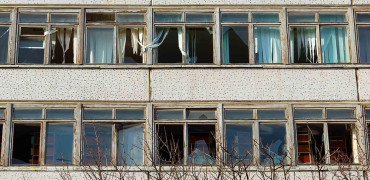So here we are, with a crisis … The country’s housing and affordability crisis has been creeping up on us for years, decades even, and now it’s reaching critical.
Many, particularly the younger generation are completely unfamiliar with the concept of home ownership, living in high cost, poor quality rental accommodation. The average private rental in England this month is £1,285.00 up almost 10% from just a year earlier, and that’s far off the average in major cities like London (over £2,000) and Manchester (up 20% in a year).
From May 2024, a new government reform comes into play, where Councils will be able to buy cheaper land to help build thousands of more social and affordable homes.
This is definitely a step forward but will this alone be the solution?
Probably not, in addition, we need to be looking not only forward but around. Radical solutions are being considered, such as:
- Reuse and recycle empty homes and properties in our communities. The number of empty homes continues to rise.
- Reduce the availability of second homes
- Consider a radical reform and embrace communal living
- and controversially ask the elderly to downsize.
If we don’t act, the situation will continue, worsening in fact.
Let’s get modern
Obviously the first step is that we need to build more homes and the National Housing Federation (NHF) suggests that we take a fresh approach to construction.
We need to alter our methods, get more modern, and make a change.
“This includes building homes in factories out of materials such as timber frames, and then assembling them on site over only a few days,” the NHF says. “Such methods enable homes to be built more cheaply, to a higher standard and more quickly.”
According to RICS a mere 8% of homes built in the UK employ MMS (Modern Methods of Construction). Going forward this has to change.
I’ve written here before about prefabricated homes and the advantages they can offer.
Modular homes are faster to build and cheaper to create, whilst satisfying our climate targets but creating significantly less waste. Lifecycle costs are more manageable and natural building materials can be easily used.
They are also built off-site in factories where a more diverse workforce can be employed, in different work patterns that can help working parents, the disabled, carers and others who couldn’t or wouldn’t be able to work on a ‘traditional’ building site.
Modern tools to increase speed
Another method of speeding up construction is 3D-printed houses, which is certainly a difficult concept to contemplate but without doubt, this ultra-modern method is making a mark on the construction industry.
It offers many advantages for the future, cost effective construction, time saving, waste reduction and without doubt sustainable.
As with many aspects of our country, we have a skills shortage in construction, and this is where Common Data Environment (CDE) could surely a game changer.
Combine this modern method of project management software can decrease the time it takes to perform all the activities needed to build a home.
It can also increase productivity and decrease labour requirements.
Basically, by employing some high-tech methods we can do much more with much less, and that includes time!
Much more than bricks and mortar
Our homes are our safety, our haven.
Home is where the heart is.
There is no place like home.
But what happens if you don’t have one?
Homes are fundamental for our health and wellbeing.
If we don’t act, the situation will continue, worsening in fact. Until everyone can afford a good quality home that they can manage, the number of children living in temporary accommodation will increase.
The social housing waiting list is set to increase by more than double, by 2045 nearly 6 million households will be spending a third of their income to keep a roof over their head and homelessness is set to accelerate.
The lack of a long-term plan for housing has led us to where we are.
Whoever is in power after the next election, will the next government be able to really do something and avert the housing crisis of the future?
Kirsty Hammond is editor of Specifier Review




